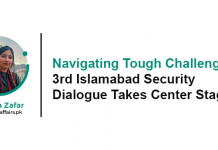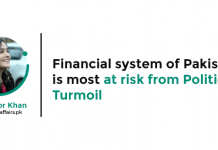Education across the world is being critically assessed for its role in sustainable development. While updating its Millennium Development Goal UN has proposed to widen its focus from school age learning to include higher education more clearly. Similarly, a report of the European Commission considers the quality of its higher education institutions to be embarrassingly disappointing.
The university as an institution is in transition. While once described as an ivory tower, a new metaphor has emerged as the institution has become more embedded in the society. Universities should not only be centres of academic learning, but should educate, train and research in a wide range of utilitarian fields.
Universities, governments, and industries are described as the DNA strands of a triple helix forming the dynamic holding blocks of a knowledge economy.
(This sentence is too complex, well, unclear to me…?)
With this has come a new pressure on the university – to provide specialized training to more students for economic development, transfer technology and respond to numerous societal needs. By identifying the internal dynamics and external forces that influence the way universities contribute to social and economic development, we gain deeper understanding of why some countries are more advanced while other lag.
The response of universities and university systems to the new pressures has varied from country to country; even developed countries are faced with critical issues of promoting education for sustainable development, but they can also afford to have large sections for academic studies and basic research, which may, however, prove very important in a longer time perspective.
There is potential for a larger role for academics in future – ranging from the social and intellectual to the industrial and entrepreneurial fields. In recent decades, the role of the university as an academic institution has had to give way to be more utilitarian. Debates and policy studies about the role of the future university are required.
In the midst of these dynamics, there is a lack of a clear understanding of the role of the lower levels of education, notably primary and secondary schools. Are their curricula relevant for further education and training in the academic fields and in professional and vocational training? Are university entrants well prepared for university studies? Maybe the universities need to use much of the first year at university to instill the minds of the students to university studies?
The problem becomes acute when set against Pakistan’s and the word’s economic uncertainty and change. There is a worrying disconnect between what is taught in schools and universities and the skills that is required in the real world today and in future. It is said that the objective of education should be to light a fire in the minds of every individual. He or she should learn to think, analyze and seek more knowledge. The methods of how to work is essential, but not so easy to teach, especially not in the social sciences and the humanities.
Part of the emerging reality is to educate the youth to become innovative and entrepreneurial and create jobs for themselves and others. But it is easier said than done, and much of it cannot really be taught; it is up to the young minds, with or without university degrees, to explore the world and use their creative and questioning minds.
We need to develop and shape our own, indigenous education systems instead of depending on more or less successful foreign copies. We must be more independent in building our own institutions according to the local socio-economic, religious, gender and other characteristics and needs. Certainly, we will learn from other countries, especially in the West and the East.
Sustainable innovative institutions must always have local roots. Global knowledge systems need to be linked to the local conditions in order to play a more relevant role in the development process. Students in Pakistan are faced with many daily problems, and indeed pressing political uncertainty and continuing tensions. There is an urgent need for adopting suitable, innovative teaching-learning strategies.
Education planners and managers tend to focus on construction of new buildings and other facilities, curricula, knowledge systems, information and communication technology (ICT) and so on. Teachers tend to present theories and methods as indisputable facts and ways of working. This creates students who struggle with what they learn and the relevance of it in the complex, shifting and uncertain world. They often lack analytical and problem-solving knowledge and methods to prosper in their future jobs, and contribute to society, which they are so eager to do.
Innovative strategies and actions are required in university teaching so that students can learn to think for themselves and analyze and understand issues and problems better. For example, we know that the media often reports inaccurately, hence students may be asked to identify items related to their subject on radio, television or the newspaper and check whether the information is true, fair and balanced. They can write to media organizations, outlining their findings, including pointing out shortcomings in reporting and so on. Debate meetings could be held with the media and other key members and organizations of society. All will learn from such activities and the students’ analytical and critical mind will be developed.
This is what educators call ‘service learning’ The students learn through their own research and investigation, while simultaneously serving the community- in this case the media – which in theory can improve the ways the social, economic and other issues are reported in future. Such activities let students learn more than facts; they learn the relevance of their knowledge to real life situations, they learn to analyze and be critical, and how academic knowledge affects the community, and so on. The students gain understanding for how the knowledge and skills they have acquired can be used responsibly and positively in society. When they graduate, they will have more confidence and skills to analyze issues, point out wrongs and recommend change and improvement – albeit often just in small ways in an imperfect world, with unemployment, instability, huge inequalities and unmet basic needs.
Many students are not interested in some of the compulsory courses they have to take towards their degrees. Many basic courses must be compulsory, but others can be optional, or new issues can be introduced related to the role of their professions in society. Theory of science and ethics should be compulsory disciplines in all university degree courses. Students should be introduced to issues related to application of science in the real world, and the way the specific professions function. This will indeed lead to enlivened discussions and it will also lead to better understanding of both positive and negative effects of science in society, the beautiful and the less beautiful sides of it, and the potential that science has.
Our societies do not need students who are mere textbook-educated ‘eggheads’. We need students, who can engage positively with society, who are responsible, passionate and driven to seek betterment of what is wrong.
Too often, higher education focuses on the former without paying attention to the latter. We are all potential entrepreneurs and innovators in the sense that we can easily identify problems. The bigger challenge, and where conventional education fails, is to enable us to overcome doubts and inhibitions and take action. The goal of higher education should be to apply the knowledge and skills acquired in the realm of every day life.
As the poet William Blake has said so well: ‘Education is not the filling of the pail, but the lighting of a fire. The purpose of education should be to light the fire in the heart and mind of every individual. Participatory teaching and learning methods motivate and empower learners to change behavior and systems that are wrong. Creative, innovative, and responsible entrepreneurs take actions that lead to sustainable development.
University graduates must have such entrepreneurs, among many other things. The universities have the responsibility to instill the right values and visions in their students – and provide and debate the relevant knowledge, skills, and work methods that are needed to build the nation, even if it is just at the local level, where most of us work quite alone or, at best, in collaboration with others.




